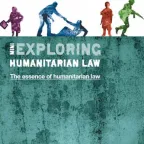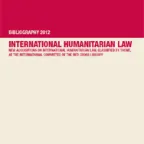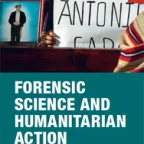ICRC Strategy 2019–2024
The ICRC Strategy 2019–2024 provides a compass for action for the next six years. It guides the organization in preventing and alleviating the suffering of people affected by conflict and violence, …
The ICRC Strategy 2019–2024 provides a compass for action for the next six years. It guides the organization in preventing and alleviating the suffering of people affected by conflict and violence, …
A guidance document in simple language for health personnel, setting out their rights and responsibilities in conflict and other situations of violence. One surgeon who reviewed the text said: "It's …
This resource kit introduces young people to the principles and basic rules of international humanitarian law (IHL). It provides 5 x 45 minutes of sequential learning activities designed for both …

Physical rehabilitation refers to a process aimed at removing – or reducing as far as possible – restrictions on the activities of people with disabilities and at enabling them to become more …
This leaflet highlights the familylinks.icrc.org website, intended for people who have been separated from their family members by armed conflicts, natural disasters or migration. It explains how to …
Everyone knows that the ICRC has been in existence for 150 years, but 2013 brings another milestone: the 30th anniversary of the ICRC Water and Habitat Unit. This richly illustrated booklet marks …
A compilation of the four quarterly IHL bibliographies issued by the ICRC Library during 2012. The bibliography is aimed at: - those who wish to expand their knowledge of IHL; - ICRC delegations, …

The proper management of forensic data is crucial for identifying human remains and resolving cases of disappearance. This brochure describes the AMPM Database, an electronic tool that facilitates …
Developed by WHO and ICRC, in collaboration with the International Federation for Emergency Medicine, Basic Emergency Care (BEC): Approach to the acutely ill and injured is an open-access training …
The ICRC provides advice, support and training for local authorities and forensic practitioners in searching for, recovering, analysing, identifying, and managing the remains of large numbers of …

Try one of the following resources:
Created in 1863, the ICRC library, alongside the ICRC archives, provides an indispensable documentary reference on the organization itself and international humanitarian law.
International humanitarian law is based on a number of treaties, in particular the Geneva Conventions of 1949 and their Additional Protocols, and a series of other instruments.
Customary international humanitarian law consists of rules that come from "a general practice accepted as law" and that exist independent of treaty law.